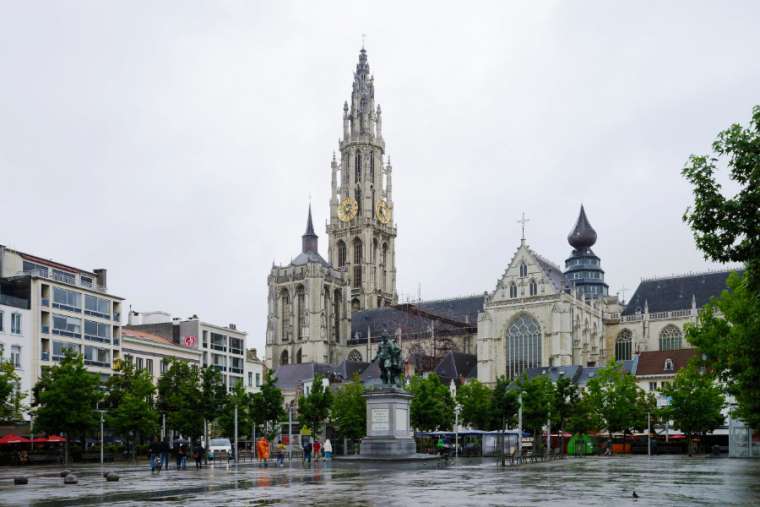Cathedral of Our Lady in Antwerp, Belgium. Credit: Alvesgaspar via Wikimedia Commons (CC BY-SA 4.0).
Catholics in Belgium are seeking to take legal action against the government after it decreed that public Masses will remain suspended in the country through 15 January 2021.
Following a ministerial decree 29 Novenber, the country’s approximately 6.5 million Catholics will be obliged to celebrate Christmas at home.
Lay Catholics are planning to organize civil suits to challenge this decree.
The method is to have pastors, legal parish entities, and parishioners sue the Belgian government for forbidding the organization of Mass, citing what they argue is subjective prejudice against them since the constitution protects freedom of worship.
Individual parishes (together with the pastor and one or more parishioners) will file the suits, with the expectation that as parishes win the right to celebrate public Mass, it will be easier for other parishes to win under the same argument.
According to the organizers of the challenge, appeals lodged the week of 7 December may be decided before Christmas, but it is not certain. The organizers said after the initial suit, which will be the most expensive, they expect each additional appeal to cost around 1,000 euros ($1,211). They are accepting donations to help pay for the legal process.
An open letter to the Belgian prime minister, written after the 29 November decree and posted on the website “For the Mass,” has been signed by 10,000 people as of today.
The letter, written by two abbots and a layman, notes that certain “non-essential” businesses, museums, and swimming pools were permitted to re-open with the new decree, while a change in the suspension of public Masses was not mentioned.
“From this Tuesday, we can go to do our Christmas shopping or go to the swimming pool on Sunday morning, but we will not be able to attend Mass! Not even that of Christmas!” it states.
“Like all Belgians and with all our parishioners, we have been involved since 18 March in the fight against the Covid-19 pandemic. The commitment of Catholics has been full and complete in the fight against this epidemic, as has our desire to serve the common good,” the letter continues. “Rigorous protocols have been implemented in each chapel, church or cathedral, adapting to the dimensions of the premises, so as to respect the instructions issued (wearing a mask, distancing, gel, etc.). We have been careful, faithful, and vigilant.”
Being able to administer the sacraments as priests, and to live them as lay Catholics, “is essential,” the letter says.
The bishops of Belgium have been informed, but are not involved in the project to legally challenge the Mass ban, the organizers said.
In a 1 December press statement, the bishops acknowledged the need for measures to counter the coronavirus pandemic, to save lives and relieve pressure on the nation’s healthcare system.
“However, the bishops, like many believers, feel this lockdown of public religious celebrations in churches as a limitation to the experience of their faith,” they said.
“The bishops want to resume dialogue with the competent governmental services to consult on the resumption of public religious celebrations, a resumption framed by protocols that guarantee maximum security.”
Belgium, a country of 11.5 million people bordering France, Germany, Luxembourg and the Netherlands, is widely reported to have the world’s highest COVID-19 death rate. More than 591,700 people have tested positive for the coronavirus and 17,320 have died in Belgium as of today, according to the Johns Hopkins Coronavirus Resource Center.
The Church initially suspended public Masses in March as the country entered its first national lockdown. Churches remained open for individual prayers, as well as baptisms, marriages, and funerals with strictly limited numbers.
Public worship resumed in June, but was suspended once again on 2 November amid a second national lockdown following a new spike in coronavirus cases.
Source: CNA

